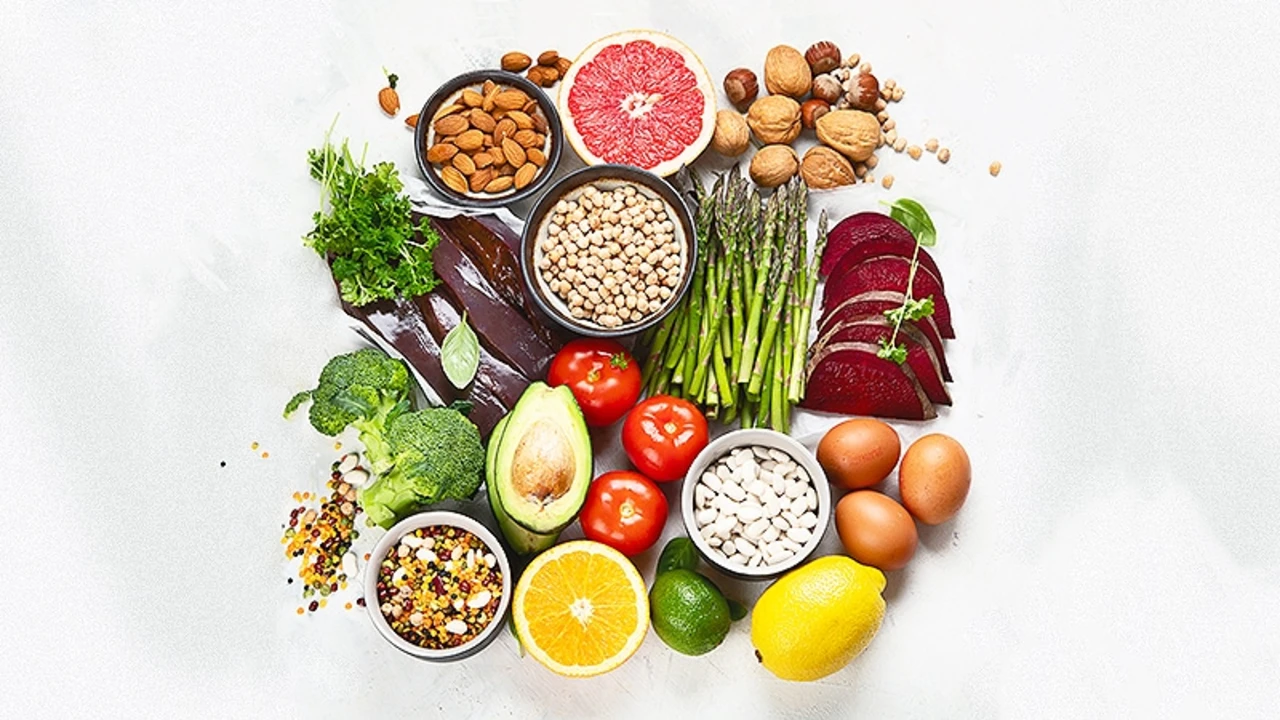
23 Aug 2023
Understanding the Key Players: Vitamin B12 and Folic Acid
As a health enthusiast and a mother, I'm always trying to understand the intricate workings of our body. So, today let's talk about Vitamin B12 and Folic Acid - two essential nutrients our body needs. When my son Reggie was learning about vitamins in school, he innocently made a comment which struck me - "Mum, the vitamins alphabet is just as long as my ABCs!" I chuckled, but it got me thinking about how often we neglect the importance of these 'alphabets' in our diet.
You may wonder, why Vitamin B12 and Folic Acid? Just the other day, as Jasper made a lovely dinner full of greens, we realised how key these two nutrients are to a healthy life. They're also crucial in preventing Megaloblastic Anemia and Folic Acid deficiency, somewhat unpopular topics that I want to shed some light on today.
The Unseen Consequences of Deficiency
With an ever-increasing number of health issues stemming from nutritional deficiencies, a lack of Vitamin B12 and Folic Acid can lead to Megaloblastic Anemia. It's sadly a common sight in our world today, with people consuming quick, nutrient-devoid meals instead of maintaining a balanced diet. Unbeknownst to many, this lapse can lead to serious complications in the long run.
This reminds me of a time when Reggie's constant lethargy and lack of energy had us worried. The paediatrician revealed a marginal deficiency and I immediately dived into the world of vitamins to ensure my child had the required daily intake. I guess sometimes life teaches you in the most unexpected ways, doesn't it?
Connecting The Dots: Vitamin B12, Folic Acid and Megaloblastic Anemia
Before we discuss the relationship between these elements further, let's understand them individually. Your body needs Vitamin B12 to produce red blood cells, which carry oxygen to all parts of your body. Folic Acid, on the other hand, aids in producing DNA and RNA, the building blocks of cells. Furthermore, it works in harmony with Vitamin B12 to regulate red blood cell production and prevent anemia.
But what happens when our body doesn't get enough of these components? That's where Megaloblastic Anemia comes in. It is a condition wherein the bone marrow produces unusually large, structurally abnormal and immature red blood cells. This leads to inefficient oxygen transport, causing symptoms like fatigue, breathlessness, and pallor. It’s like having a car but no fuel to run it effectively.
The Stealthy Signs of a Folic Acid Deficiency
In our fast-paced world, we often miss signs that our bodies give us, and believe me, the symptoms of a Folic Acid deficiency can be quite sneaky. Did you know that lack of Folic Acid can lead to not just fatigue but also poor growth, gingivitis, and tongue inflammation? Plus, let's not forget the potentially severe consequences during pregnancy, like neural tube defects in babies. Trust me, ladies, ensuring a good supply of Folic Acid is more important than getting your nails done right!
Jasper once cleverly summed these complications up, “It's like putting low-grade fuel into a high-performance car and expecting it to run smoothly. It’s not going to happen!”
Taking the First Step: Dietary Solutions
So, how can we ensure that we get a sufficient intake of Vitamin B12 and Folic Acid in our diets? Well, the good part is it's not rocket science. Most animal foods are good sources of Vitamin B12 - think seafood, meat, poultry, eggs, and dairy. Did you know that some breakfast cereals are fortified with Vitamin B12 as well? Now that's a reason for a hearty breakfast affair!
In terms of Folic Acid, green leafy vegetables, fruits, nuts, beans, seafood, eggs, and grains are your best bet. If you ever thought salads were boring, think again. They could be your best defence against serious health issues!
Supplements: When Food is Not Enough
While maintaining a balanced diet is crucial, what do we do if our dietary intake isn't enough? This is especially true in vegan individuals, pregnant women, and those with malabsorption conditions. During such times, doctor-recommended supplements can be game-changers. It is, however, essential to consult your healthcare provider before starting any supplement routine. After all, everyone's body is unique, and what works best for you might differ from others.
While Vitamin B12 supplements are commonly available, so are Folic Acid ones. They're your proverbial safety net when diet alone cannot fulfil the required nutrient intake.
Final Thoughts: Prevention is Better than Cure
As the old saying goes, 'Prevention is better than cure', and it couldn't be more true in this context. Ensuring we meet our daily nutrient intake can help us evade health issues triggered by deficiencies. Remember, food should not merely satisfy your taste buds, it should also nourish your body.
To wrap up, remember that a diet rich in Vitamin B12 and Folic Acid is a simple yet powerful solution in preventing Megaloblastic Anemia. So here's to a healthier future, one vitamin-fortified meal at a time!
Write a comment